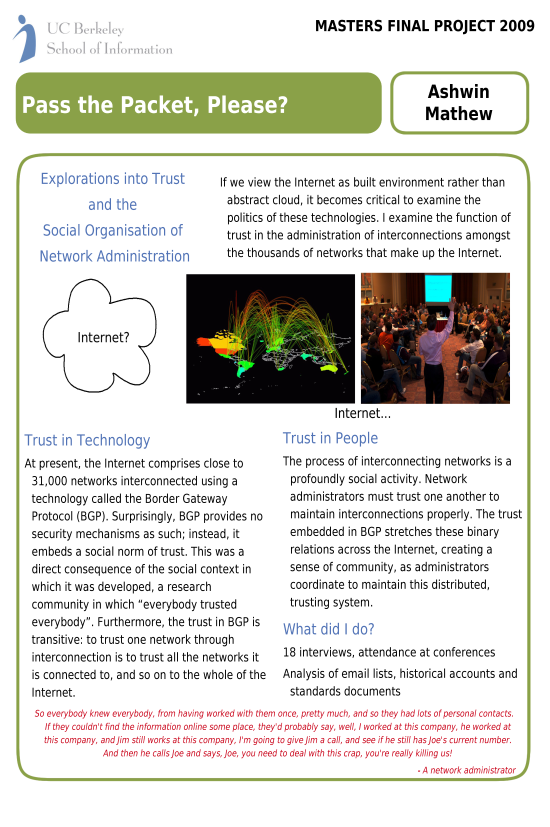Pass the Packet, Please?
If we view the Internet as built environment, rather than an abstract "cloud", then it becomes critical to consider what the politics of this artifact might be, to understand the politics of the technical systems that enable these flows.
In this work, I investigate one particular perspective on this problem space, the social organisation of network administrators that keep the Internet afloat. I analyse their interactions with one another in relation to the Border Gateway Protocol (BGP), which is used to maintain connections across the “borders” of the thousands of networks that make up the Internet. Although BGP was created to allow different network domains (typically separate commercial entities) to coexist and interconnect with one another, it paradoxically embeds a notion of trust. This makes the inter-domain routing system enabled by BGP an interesting area for investigation, since network administrators must coordinate amongst themselves to compensate for routing failures that result from the trusting nature of BGP.
The Internet has an additional property that makes it unique amongst many technical systems: those involved with the Internet, especially in the early days, were simultaneously users, researchers and developers. As such, the practice of inter-domain routing evolved BGP over a period of several years. At the same time, network administrators learned to work with BGP, and with one another, to coordinate the distributed management of the Internet. It is this co-evolution of social form and technical construct that I focus on in my research.










